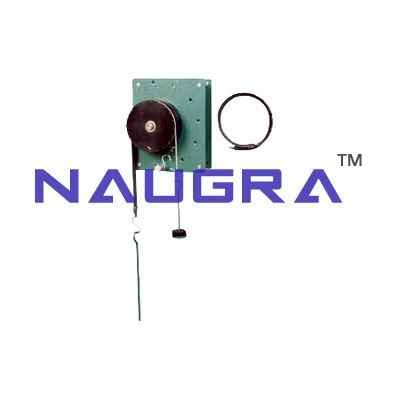- Civil Lab Mechanical Lab Engineering Lab Equipments
- sales@didacticlabequipments.com

CAT NO: DIDACTICNLE-Export-059008
Friction of Belts Apparatus- Engineering Lab Training Systems.
Features
Low-cost effective teaching.
Self-contained.
Wall mounted.
Variable angle of lap.
Flat, round and vee belts.
Determination of coefficient of friction.
Verification of belt tension law.
Three year warranty.
Range of Experiments
To observe the relationship between the tensions in the two sides of a belt
To assess the differences between Vee, rope, and flat belts
To determine the coefficient of friction between the pulley and belt for the belt sections
To investigate the effect of angle of lap
Description
The
apparatus consists of a wall mounted pulley with a loaded belt. The
pulley is made of aluminum and has two machined grooves to suit a flat
Vee belt, and a rope.
For a given belt tension and angle of lap, a
turning moment can be applied by adding weights to the pulley drive
hanger. The idea is to determine the torque which just causes the pulley
to turn, and so to find the ratio of the belt tensions. This enables
the belt tension equation to be verified and the coefficient of friction
to be determined.
The angle of lap can be easily varied.
This
equipment is part of a range designed to both demonstrate and
experimentally confirm basic engineering principles. Great care has been
given to each item so as to provide wide experimental scope without
unduly complicating or compromising the design. Each piece of apparatus
is self-contained and compact. Setting up time is minimal, and all
measurements are made with the simplest possible instrumentation, so
that the student involvement is purely with the engineering principles
being taught. A complete instruction manual is provided describing the
apparatus, its application, experimental procedure and typical test
results.
